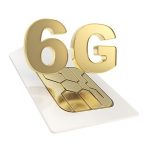UPD EE Reveal UK Prices for its Superfast 4G Mobile and Fibre Broadband
Mobile operator EE (4GEE) has today unveiled the final pricing and package details for its new 4G (1800MHz) based superfast LTE mobile internet and separate fixed line Fibre Broadband (FTTC) services for home users (due to go live on 30th October). But how do they compare?
Firstly we’ll take a look at the operators Fibre Broadband product. This harnesses BT’s Fibre-to-the-Cabinet (FTTC) technology, which is currently available to over 11 million UK premises (roughly 40% of the UK), to deliver internet download speeds of up to 76Mbps (Megabits per second) via a home fixed line connection (maximum of up to 80Mbps).
Advertisement
A quick note of caution. EE’s website makes the silly mistake of listing Mbps as MB/S, which could confuse some consumers as MB typically means MegaBytes and not Megabits (Mb). A MB is eight times larger than a Mb.
Fibre Broadband
Prices start at £15 per month (£22 if you opt for the business variant) for the entry-level 38Mbps Fibre Broadband service (plus a £50 one-off connection fee and £14 a month for Line Rental), which includes a 40GB usage allowance, free off-peak calls and a free BrightBox router. This rises to £25 a month if you want the 76Mbps Fibre Broadband option with “unlimited” usage. EE will also discount the cost of Fibre Broadband by £5 a month if you take one of their 4GEE mobile contracts, although this is only applicable via a lengthy 24 month contract period (normally 18 months).
As a comparison Sky Broadband offer their Sky Fibre Unlimited (38Mbps) service from £20 a month (plus £14.50 line rental) with many of the same features (£30 if you want the 76Mbps service), free setup and truly unlimited usage. Meanwhile BT’s 38Mbps service with a 40GB usage allowance starts at £18 a month but Line Rental can be taken from just £10.50 (paid one year in advance). Generally speaking EE seems competitive, albeit more so if you’re going to bundle a mobile service for the extra discount.
What about the 4GEE mobile service?
Next we come to EE’s prized 4G superfast Mobile Broadband service, which is currently available to customers within 10 UK cities including Birmingham, Bristol, Cardiff, Edinburgh, Glasgow, Leeds, Liverpool, London, Manchester and Sheffield.
Advertisement
The cities of Belfast, Derby, Hull, Nottingham, Newcastle and Southampton will follow by the end of this year (i.e. a third of the UK population). Outside of this the network will revert back to 3G and 2G services, at least until 4G coverage improves to reach 98% of UK people by 2014.
The initial 4G service comes in the form of several Pay Monthly only packages that start at £36 per month with unlimited calls and tests as standard. The price includes a choice of handsets with discounted prices (e.g. iPhone 5, HTC One XL 4G etc.). Sadly the data allowance at this level is just 500MB (MegaBytes) a month (an extra 50MB add-on costs £3), which given the faster speeds is perhaps not what many would have expected from the first 4G solution (rises to 8GB on the top £56 a month plans).
All customers will also be able to Tether their phones or use VoIP (e.g. Skype) services as part of their plan (no need to buy specific data add-ons), while access to BT’s national WiFi Hotspot network is included at no extra cost, which certainly mitigates some of the initial disappointment. In addition if you pay an extra £5 a month then the unlimited voice and text allowance can be taken and used abroad (roaming).
On top of that there’s also an EE Film service, which acts as an online movie streaming store. 4GEE customers will able to download or stream a free film, each week, without impacting their data allowance. Further films can be downloaded or streamed with prices starting at 79p. There’s also an offer of 2 for 1 cinema ticketing.
Advertisement
Olaf Swantee, CEO of EE, said:
“We’re proud to be leading the way and pioneering the roll out of 4G in the UK. With our new brand and unique 4G and Fibre services, we will deliver consumers and businesses across the country next-generation services and a superior level of support.
Our new plans have been developed to offer our customers everything they have been asking for – superfast performance, choice and value – as well as a fresh approach to pricing and customer service that offers accessibility, flexibility and guidance every step of the way.”
Sadly EE does lack a few things. Pre-Paid (pay-as-you-go) options, which are hugely popular in the UK market, appear to be absent and it’s unclear whether any SIM-Only deals will be available or not at launch. Likewise we couldn’t see any dedicate Mobile Broadband USB Dongle/Modem packages mentioned, which seems like a rather significant oversight.
Overall the new service looks interesting but, given 4G’s initial lack of coverage and some not particularly special packages, we’d still be inclined to hold off until more operators adopt 4G next year. People will no doubt relish the faster speeds but consumers may seek more than what’s on offer here before they consider jumping ship.
At the same time it’s worth pointing out that both T-Mobile and Orange UK will benefit from the same network. As a result we can’t help but question whether it was a good decision to create a third brand, especially if the packages are going to be so similar to what exists already.
UPDATE 9:06am
It looks like EE will have some SIM-Only plans after all, which are priced as follows with unlimited calls and texts.
500MB – £21 a month
1GB – £26
3GB – £31
5GB – £36
On top of that they do offer dedicated Mobile Broadband dongles, with prices starting from £15.99 a month (18 month contract) for a 2GB usage allowance (an extra 500MB costs £6 and an extra 2GB costs £15).
EE also appear to have cloned Orange UK’s standard fixed line Home Broadband service, which starts at £5 a month (12 month contract) for an unlimited usage service with free off-peak calls and speeds of up to 14Mbps. Line Rental at £14 is still required.
Mark is a professional technology writer, IT consultant and computer engineer from Dorset (England), he also founded ISPreview in 1999 and enjoys analysing the latest telecoms and broadband developments. Find me on X (Twitter), Mastodon, Facebook, BlueSky, Threads.net and Linkedin.
« Rural Ewelme Village Secures UK Rural Community Broadband Funding
















































Comments are closed